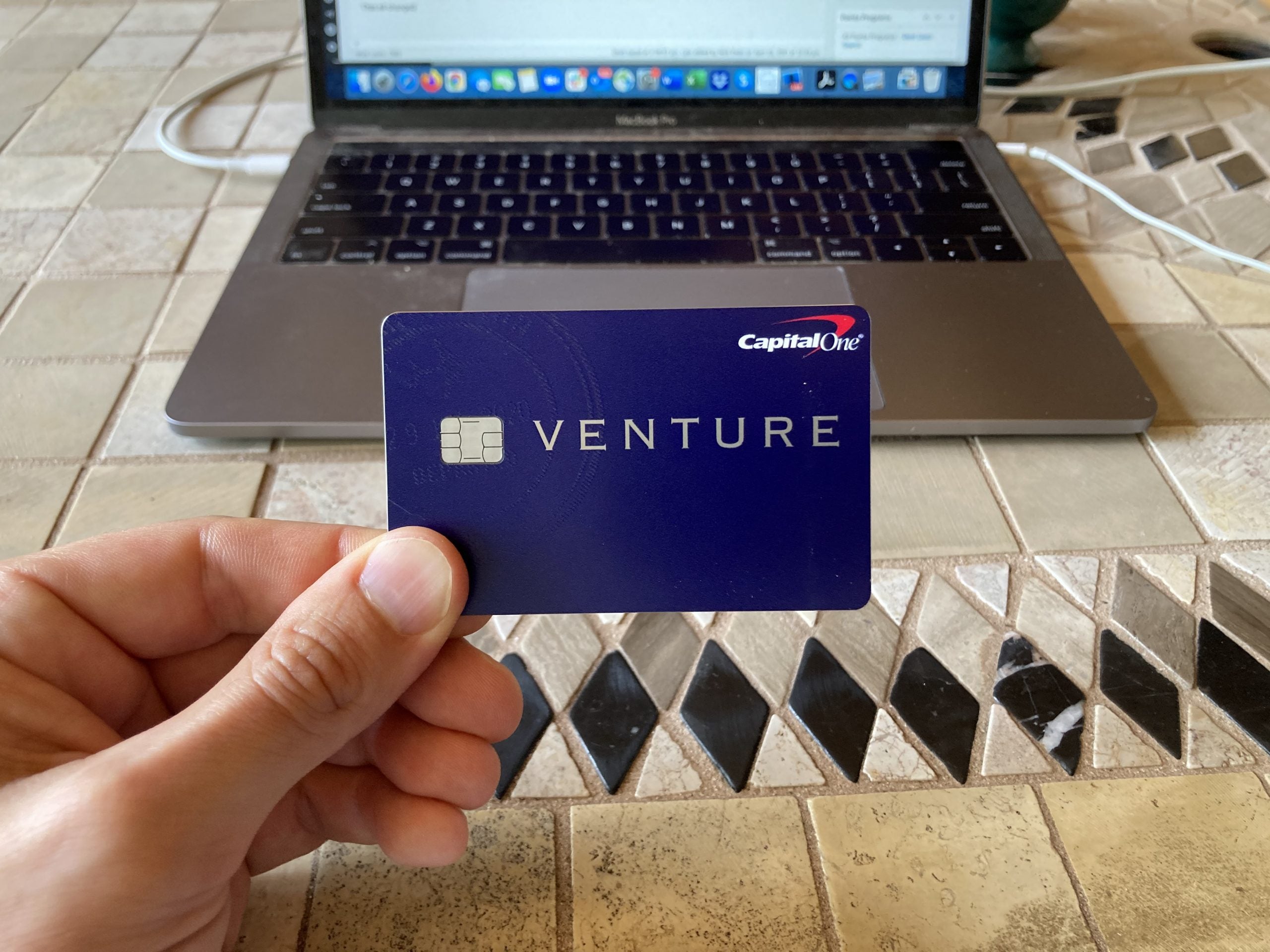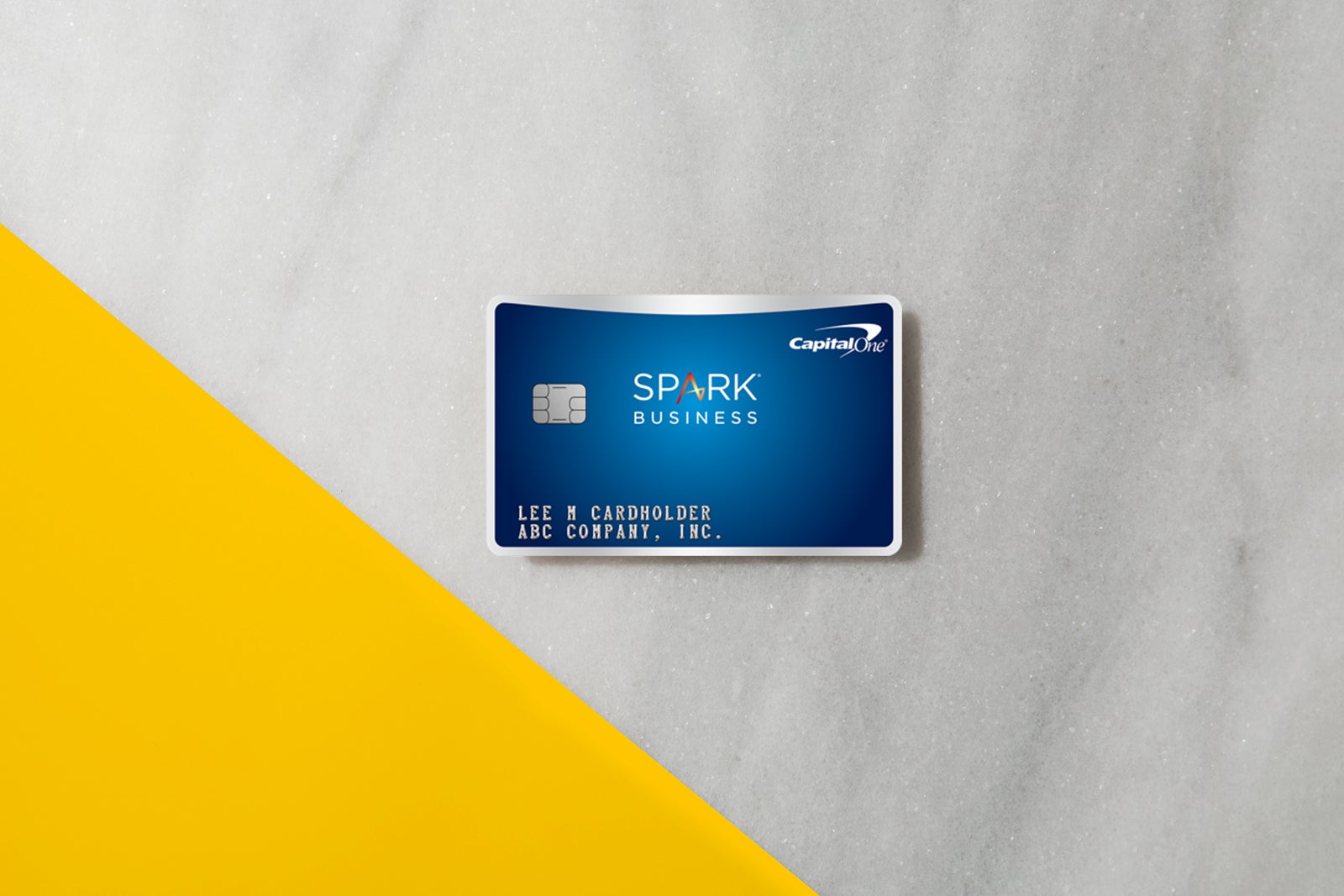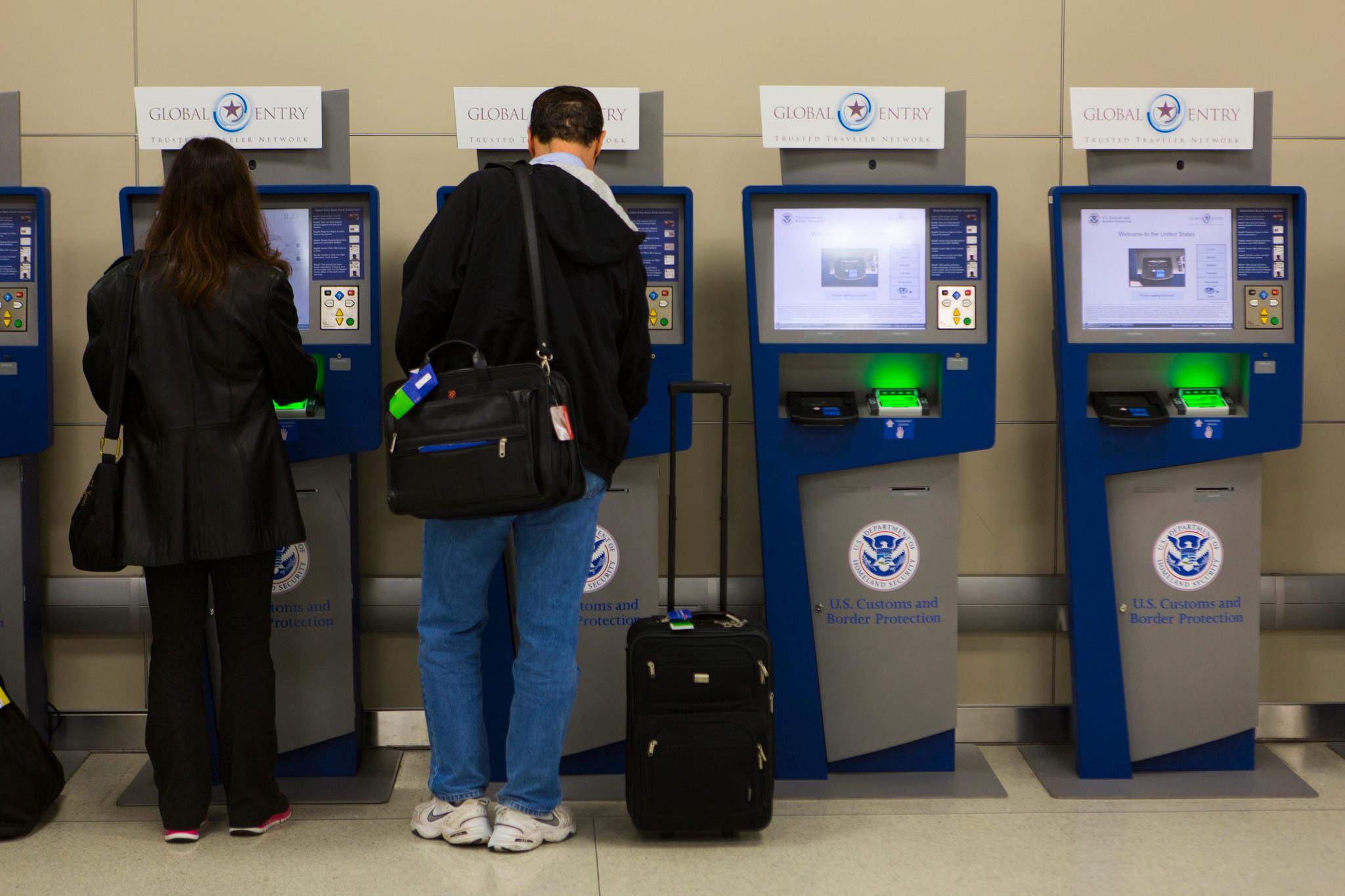The Capital One Venture Rewards Credit Card is currently posting a historically high sign-up bonus, with the chance to earn up to 100,000 miles by making $20,000 in purchases within the first 12 months of account opening. This is a rare and limited-time offer that might have many folks who haven’t previously carried the Capital One Venture thinking of applying. Before you do, though, you might want to consider the Capital One Venture’s small-business counterpart — the Capital One Spark Miles for Business.
For more TPG news delivered each morning to your inbox, sign up for our daily newsletter.
Like the Capital One Venture, the Capital One Spark Miles for Business earns a flat 2x miles per dollar on every purchase, charges a $95 annual fee, and allows cardholders to redeem their miles for travel purchases as well as transfer them to Capital One’s 19 airline and hotel partners. In fact, the two cards are so similar, you might have trouble telling them apart, other than their names.
But it’s worth delving into their differences to figure out whether the Capital One Venture or Capital One Spark Miles for Business will be a better choice for your needs, and which card’s benefits you can better leverage for rewards. Here’s an overview of the two products, and a detailed comparison to help you decide between them.
Comparing Capital One Venture vs. Capital One Spark Miles for Business
Let’s start with a quick overview of some of the highlights of each card. For more details, be sure to check out our full review of the Capital One Venture Rewards Credit Card and Capital One Spark Miles for Business.
| Capital One Venture Rewards Credit Card | Capital One Spark Miles for Business | |
| Sign-up bonus | 100,000 bonus miles after spending $20,000 on purchases in the first 12 months from account opening, or still earn 50,000 miles if you spend $3,000 on purchases in the first 3 months | 50,000 bonus miles after spending $4,500 on purchases in the first 3 months of account opening |
| Annual fee | $95 | $0 the first year, then $95 |
| Earning | 2x on every purchase | 2x on every purchase |
| Redeeming | Miles transfer to 16 airlines, 3 hotels
1 cent per mile toward travel 0.5 cents per mile for other statement credits |
Miles transfer to 16 airlines, 3 hotels
1 cent per mile toward travel 0.5 cents per mile for other statement credits |
| Other benefits | Up to $100 Global Entry or TSA PreCheck statement credit every 4 years
No foreign transaction fees Travel accident & secondary auto rental coverage* Purchase protection, extended warranty* |
Up to $100 Global Entry or TSA PreCheck statement credit every 4 years
No foreign transaction fees Primary auto rental coverage on business rentals, otherwise secondary Free employee cards Account and business management tools Purchase protection, extended warranty |
*Benefits only available to accounts approved for the Visa Signature card. Terms apply.
Sign-up bonus

The Capital One Venture and Capital One Spark Miles for Business usually offer similar sign-up bonuses. Though at the moment, they are quite different, which might skew your preference.
For its part, the Capital One Venture is extending its highest-ever, limited-time bonus of up to 100,000 miles. Earn 100,000 bonus miles when you spend $20,000 on purchases in the first 12 months from account opening, or still earn 50,000 miles if you spend $3,000 on purchases in the first 3 months.
The Capital One Spark Miles for Business is currently offering 50,000 miles after spending $4,500 on purchases within the first three months of account opening. The $95 annual fee is waived for the first year.
Winner: Capital One Venture. This was an easy choice. Not only is the Capital One Venture offering more miles overall than the Capital One Spark Miles for Business, but even if you’re only going for the first-tier bonus of 50,000 miles, you don’t need to spend as much with the Venture card as you do with the business card.
Related: 6 reasons to get the Capital One Venture Rewards card
Earning rates

The two cards have identical (and straightforward) earning structures. The Capital One Venture Rewards card and, likewise, the Capital One Spark Miles for Business card earns a fixed 2 miles per dollar on every purchase with no limit to how many miles you can earn.
That means you’ll earn 2x miles per dollar on every purchase you make — like that new TV or couch you’ve been coveting — with no annual limits to worry about. This translates to a consistent return of 2% back or 1-2x airline miles or hotel points per dollar spent, making both cards some of the best options for everyday spending.
Related: The best Capital One credit cards of 2021
Winner: Tie. Both cards earn 2 miles per dollar everywhere, so no need to juggle various bonus categories.
Redeeming options
One of the main selling points of both cards is the sheer variety and value you can enjoy when redeeming the miles they earn. With both cards, your options are the same, so you won’t enjoy an advantage from one over the other. That said, it’s still worth reviewing all the possibilities.

Let’s start with the simplest. Capital One miles earned with either card are redeemable for travel at a rate of one cent apiece. You can either use your miles to make reservations, such as flights or hotel stays, directly through Capital One Travel. You can also just charge a travel purchase elsewhere – say an airline site or an online travel agency – and then log into your Capital One account and redeem your miles for a statement credit against it within 90 days. So your return on spending with either card is a solid 2%.
Related: The easiest redemption option: Redeeming Capital One miles at a fixed value
Now through June 30, 2021, Capital One Venture cardholders can redeem their miles at 1 cent apiece for restaurant charges, as well as food delivery and streaming service purchases made in the previous 90 days. Eligible services include DoorDash, Uber Eats, Postmates, Netflix, Hulu, Spotify and more. For the same limited time, Capital One Spark Miles for Business cardholders can redeem their miles at the same 1-cent rate for takeout, delivery, and phone service charges.
Related: Tips and tricks to get maximum value from your Capital One Miles
If you redeem your miles for cash back against other charges with either card, you get a mere half-cent per mile in value. This brings down your return on spending to just 1% – so it’s best to avoid this and just use a different cash-back card without specific redemption category restrictions.
Where things get more exciting, though, is that Capital One now has 19 travel transfer partners (four of which were just added in April). Miles transfer to the following airline frequent flyer and hotel loyalty programs at the rates listed below.
Airline partners
- Aeromexico Club Premier (1:1)
- Air Canada Aeroplan (2:1.5)
- Air France/KLM Flying Blue (2:1.5)
- Alitalia MilleMiglia (2:1.5)
- Avianca Lifemiles (1:1)
- British Airways Executive Club (2:1.5)
- Cathay Pacific Asia Miles (1:1)
- Emirates Skywards (2:1)
- Etihad Guest (1:1)
- EVA Air Infinity MileageLands (2:1.5)
- Finnair Plus (1:1)
- JetBlue TrueBlue (2:1.5)
- Qantas Frequent Flyer (1:1)
- Singapore Airlines KrisFlyer (2:1)
- TAP Air Portugal Miles&Go (1:1)
- Turkish Airlines Miles&Smiles (2:1.5)
Related: How to transfer Capital One miles to airline partners
Hotel partners
- ALL Accor Live Limitless (2:1)
- Choice Hotels (1:1)
- Wyndham Rewards (1:1)
Although it would be great if the conversions took place on a 1:1 basis for all partners, the fact that at least some of them work this way now is good news. Not only that, but remember the Capital One Venture and Capital One Spark Miles for Business earn 2 miles per dollar on all purchases. From that perspective, it’s like earning 1-2 airline miles or hotel points on every dollar you spend, which isn’t bad.
Related: Your ultimate guide to the 19 Capital One transfer partners
There are plenty of ways to get tremendous value from transferring your Capital One miles. That’s why TPG values Capital One miles at 1.7 cents apiece, rather than just the 1 cent you get by directly cashing in your miles for travel expenses.
Among the best transfer options are using Air Canada Aeroplan miles to book short-haul flights in economy or redeem them for over-the-top international business and first-class awards on Star Alliance partners like Lufthansa and ANA. Avianca Lifemiles is another great transfer option if you’re looking for Star Alliance flights.
Related: To transfer or not to transfer: What to do with Capital One miles
You may consider transferring to Etihad Guest for some sweet spots on its partner, American Airlines, such as 50,000 miles each way from North America to Europe in business class, or 62,500 miles one-way from North America to Australia.
Related: The ultimate guide to Etihad partners
Once Air France-KLM Flying Blue starts offering Promo Awards again, with mileage discounts of 25-50% off select routes that rotate monthly, that could be a great way to get some SkyTeam flights on your docket from your Capital One miles.
There’s something else to keep in mind if you also carry a Capital One cash back card, such as the Capital One Savor Cash Rewards Credit Card, or the Capital One Quicksilver Cash Rewards Credit Card, in your wallet. You can actually log into your Capital One portal and transfer cash back (earned from your Capital One cash back card) at a 1:1 ratio to your mileage-earning card account by using the “Share My Rewards” option under the tab for rewards. That means one cent of cash back equals one Capital One mile.
The information for the Capital One Savor card has been collected independently by The Points Guy. The card details on this page have not been reviewed or provided by the card issuer.
Related: Did Capital One cards just get even more valuable? You can now convert your cash back to miles
If you’re already sitting on a stockpile of cash back you’ve accumulated with another Capital One card, opening either the Capital One Venture or Capital One Spark Miles for Business could be a great way to diversify your redemption options dramatically.
Winner: Another tie since the redemption options and rates are the same, whether you have the Venture or the Spark Miles.
Other benefits
Although these cards offer similar benefits, their differences mostly come down to the fact that the Capital One Venture is a personal credit card, and the Capital One Spark Miles for Business is…well, a business credit card.
If that gives you pause, just remember that you may be eligible for a business card without even realizing it. It’s a common misconception that you must have your own business to apply for a business credit card. However, freelancers, independent contractors, sole proprietors or even folks with a side hustle that brings in some income might be eligible to open a business credit card.
Related: How to complete a Capital One business credit card application
Aside from the usual reasons you might want to do so, such as separating work and personal expenses, is the fact that Capital One restricts the number of personal cards anyone can have to just two. So if you already carry two other Capital One products, such as the Capital One Savor and Capital One Quicksilver, you might not be eligible to open the Capital One Venture at this time. That makes the Capital One Spark Miles for Business an excellent alternative.

Interestingly enough, both cards offer a statement credit worth up to $100 for either a Global Entry or TSA PreCheck application once every four years, which can cut down on your hassle at the airport.
Related: The Top 7 Cards for Global Entry and TSA PreCheck
The Capital One Spark Miles for Business extends primary car rental collision coverage when renting for business purposes and paying with your card, which is a real standout feature. If renting for personal reasons, the coverage is secondary, like you’d get with rentals paid for with the Capital One Venture.
Both cards will extend manufacturer warranties of three years or less up to an additional year. The Capital One Spark Miles also includes purchase protection of up to $10,000 per claim and $50,000 per cardholder up to 90 days from the date of purchase. By contrast, the Capital One Venture’s purchase protection caps out at $500 per claim and $50,000 per cardholder.
Related: Best credit cards for car rental coverage
Both cards will insure lost luggage up to $3,000, but don’t expect other travel protections like trip delay, interruption, or cancellation coverage.
Neither card charges foreign transaction fees, nor does it cost money to add authorized users, such as employees with the Capital One Spark Miles for Business.
Winner: Capital One Spark Miles for Business, thanks to its primary auto rental coverage (for business purposes) and higher purchase protection caps.
Benefits only available to accounts approved for the Visa Signature card. Terms apply.
Bottom line: Which one should you choose?
When you get down to it, the Capital One Venture and Capital One Spark Miles for Business are both excellent travel rewards credit cards.
Their easy-to-understand earning structure of 2x miles per dollar on all purchases is simple to leverage on everyday expenses. Both cards also enable you to redeem miles not just directly for travel purchases but also to transfer them to 16 airline and three hotel partner programs, making them extremely dynamic and potentially valuable.
Related: Why the Capital One Venture has a front spot in our wallets
If you already have two Capital One personal credit cards or regularly rent cars for business and depend on high-dollar purchase protections, the Capital One Spark Miles for Business is probably your best choice for now.
However, if you are eligible to apply for the Capital One Venture, now is the time to do so thanks to that sky-high welcome bonus. Capital One has only raised the prospect of 100,000 miles for the Venture once before, in October 2020. There’s no telling if anything like this will ever come back once the limited-time promotion ends. So if the card has been on your radar for a while and you’ve put off applying for one reason or another, now is not the time to hesitate any longer.
With either card, you can’t really go wrong, especially if you have some specific ways in mind to redeem your Capital One miles once you rack them up.
Apply link: Capital One Venture Rewards Credit Card — Available for a limited time with up to 100,000 bonus miles.
Apply link: Capital One Spark Miles for Business — Available with up to 50,000 bonus miles.
Featured photo by Eric Helgas/The Points Guy.

